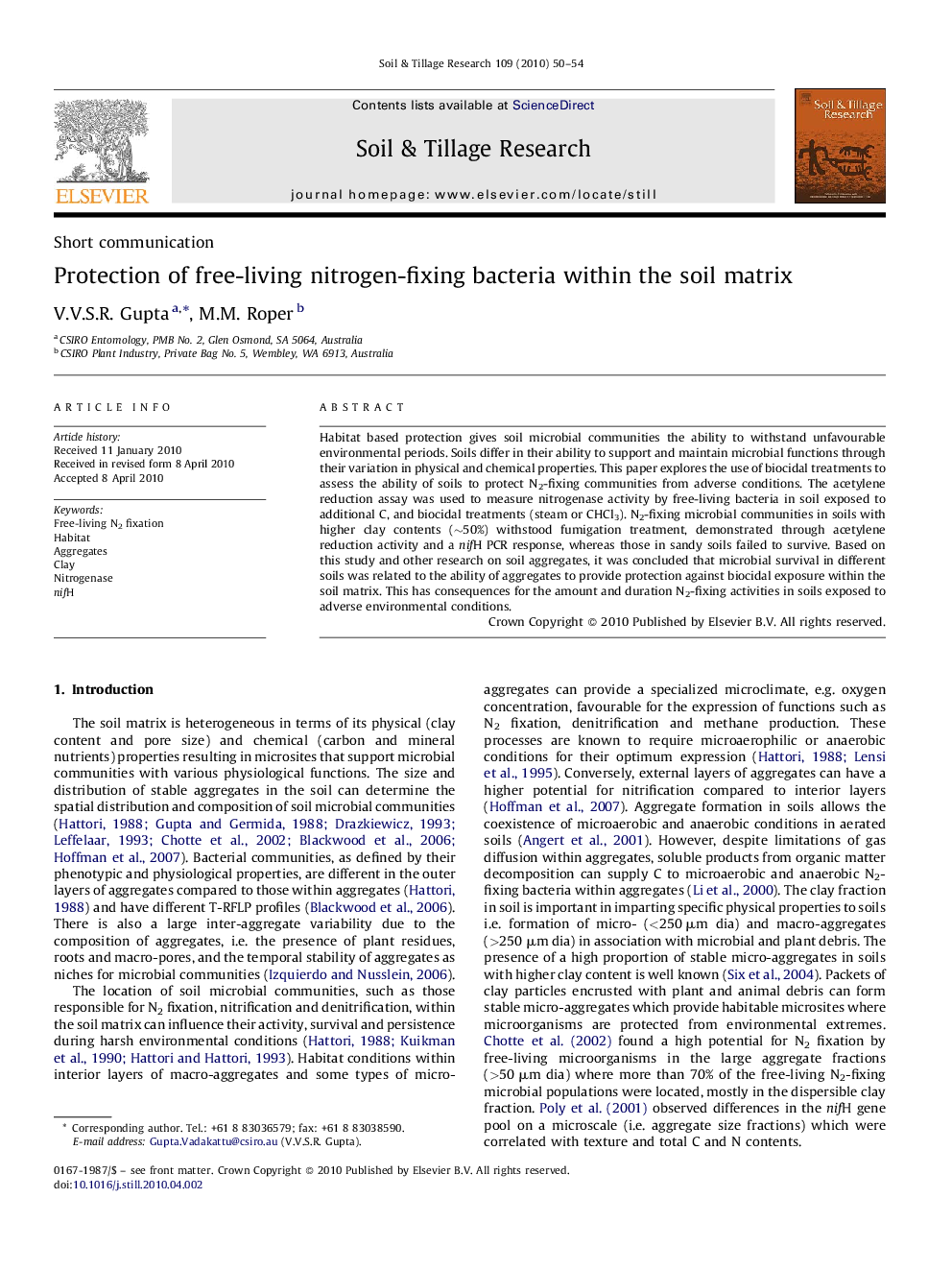| Article ID | Journal | Published Year | Pages | File Type |
|---|---|---|---|---|
| 306236 | Soil and Tillage Research | 2010 | 5 Pages |
Habitat based protection gives soil microbial communities the ability to withstand unfavourable environmental periods. Soils differ in their ability to support and maintain microbial functions through their variation in physical and chemical properties. This paper explores the use of biocidal treatments to assess the ability of soils to protect N2-fixing communities from adverse conditions. The acetylene reduction assay was used to measure nitrogenase activity by free-living bacteria in soil exposed to additional C, and biocidal treatments (steam or CHCl3). N2-fixing microbial communities in soils with higher clay contents (∼50%) withstood fumigation treatment, demonstrated through acetylene reduction activity and a nifH PCR response, whereas those in sandy soils failed to survive. Based on this study and other research on soil aggregates, it was concluded that microbial survival in different soils was related to the ability of aggregates to provide protection against biocidal exposure within the soil matrix. This has consequences for the amount and duration N2-fixing activities in soils exposed to adverse environmental conditions.
